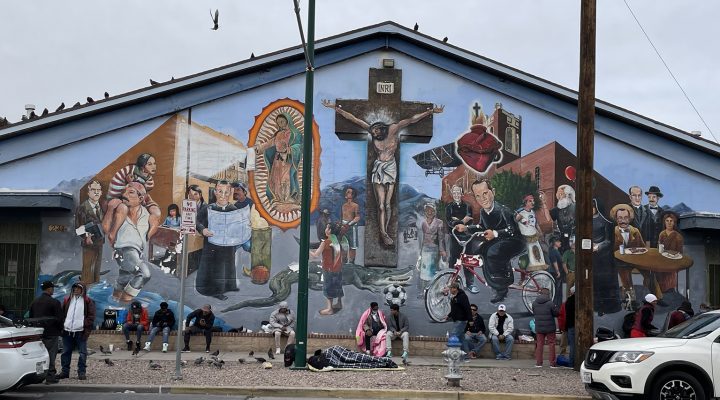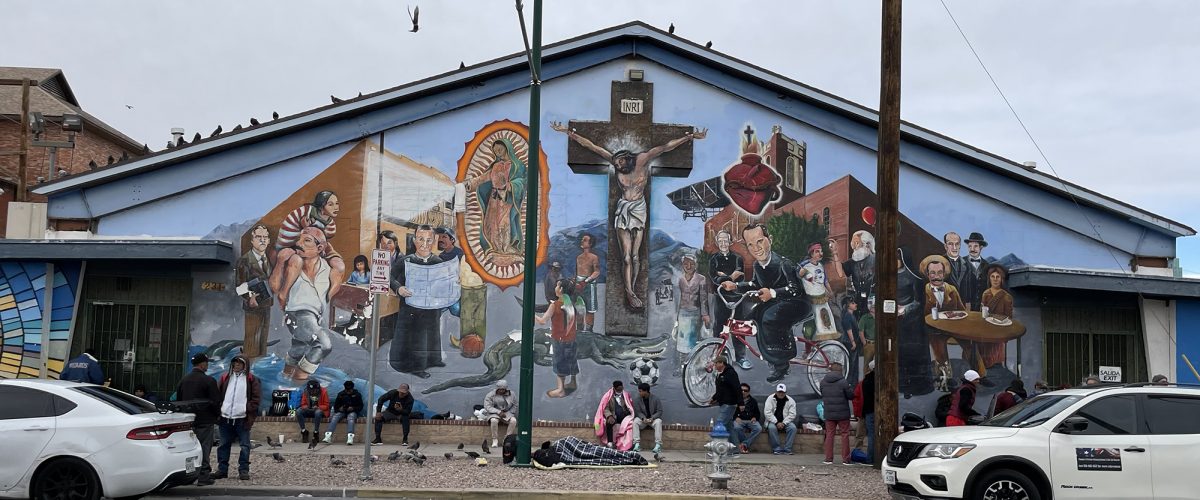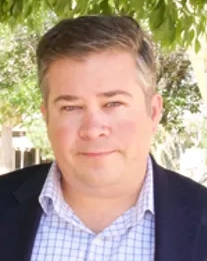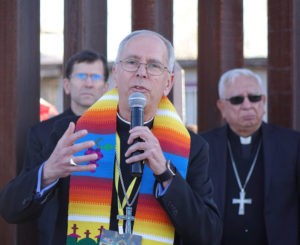Immigration advocacy and ministry groups must band together with renewed courage and resolve to meet the anti-immigrant initiatives expected during Donald Trump’s second presidency, activists said during a post-election webinar.
“There will definitely be policies to limit asylum at the border, there will definitely be actions to turn back the vulnerable at the border,” said Dylan Corbett, executive director of Hope Border Institute, an El Paso-based Catholic strategy center and social justice organization focused on issues at the U.S.-Mexico border region.
“And while we cannot predict what form it might take, there will be a campaign of deportation here, at the border and in the interior of our country which underscores the real need for us to act and to organize in new and creative ways,” he said. “And it’s urgent we begin preparing.”
Joining Corbett for the Nov. 20 discussion were Mark Seitz, bishop of the Catholic Diocese of El Paso; Blanca Navarrete Garcia, a social worker and director of a human rights organization in Mexico; and Gustavo Meneses Castro, a priest who oversees Catholic efforts to monitor and respond to human migration in the Americas and Caribbean.
As daunting as mass deportation and other anticipated immigration policies may be, advocates have years of experience serving migrants in increasingly difficult circumstances, Corbett said. “Over the past couple decades, our country has leaned really heavily into enforcement. We have hardened our border, we have built walls, we have enacted limitations on the rights to asylum. The Biden administration in particular has been leaning into immigrant detention over the past couple of years.”
Communities and ministries along the border have risen to the challenge, he said. “El Paso-Juarez has stood up heroically in so many ways. … What we have shown here at the border is that it is possible to welcome people with dignity, with humanity and that when we respond with compassion, we are better off as a border community and as a country.”
The continued politicization of immigration adds another layer to the challenge, Corbett said. “As people of faith, we understand that this is also a deeply moral question: What do we do when the vulnerable show up at our southern border? And it’s a spiritual question: What type of community do we want to be? That’s why the role of our faith communities is going to be so decisive as we negotiate the challenges which are now in front of us.”
The Catholic Church will be there to support immigration advocates when the pressures mount in the coming years, Seitz said.
“The church is unequivocally on the side of a community in fear right now and stands with the migrant community. I want to state that as clearly as possible to those who are afraid today, to migrants who are part of our communities, our churches and who work in America’s essential jobs.”
“The church is unequivocally on the side of a community in fear right now and stands with the migrant community.”
The church also stands with those who work in Catholic Charities agencies, parishes or nonprofits that serve migrants, he said. “For a person of faith working or volunteering in a community organization right now, I recognize this as a difficult moment. It is going to be challenging, it is going to be tiring, and it may be scary.”
In fact, it’s already been scary for some faith-based nonprofits in Texas. Earlier this year, state Attorney General Ken Paxton tried unsuccessfully to revoke the licenses of Annunciation House, a Catholic migrant shelter, and Las Americas Immigration Advocacy Center, both in El Paso.
“As a priest and as a bishop, you have my support. I am praying for you and know that church and society will need you and your gifts more than ever,” Seitz said. “We have to have one another’s back. Let’s move forward together. And as we do, let’s give no quarter to hate or despair. Love must be our fuel. Solidarity must be our banner. So we steady ourselves, we prepare and we move forward together.”
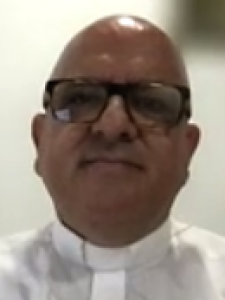 However severe future immigration policies become, they will not be enough to stop desperate people from migrating toward the U.S., Castro said.
However severe future immigration policies become, they will not be enough to stop desperate people from migrating toward the U.S., Castro said.
“The reality is the flow is continuous and they will have a more violent and more dangerous migration” due to seeking more risky routes and greater exposure to human traffickers along the way, he predicted.
Meanwhile, the rising presence of deportees arriving from the U.S. will place tremendous stress on charities, churches and aid groups in Mexico and other nations along migration routes, Navarrete Garcia said.
She urged the launch of an international effort to provide support to those organizations and their leaders, with U.S. faith groups taking the lead in helping their cross-border counterparts.
Related articles:
Mass deportations will devastate the economy, business leaders warn
Immigrants married to U.S. citizens suffer legal setback
New book documents how Trump administration prioritized deporting Muslims

